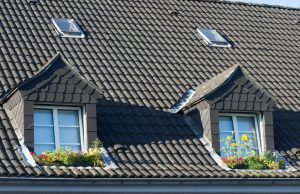
What It Takes To Heat a Pool
The necessary cost of heating a pool can be high. Note that the greater the price, the less efficient your pool’s design and equipment is.
This article will discuss how much you should expect on average to spend if you’re planning on heating your pool this winter season. It will also provide some tips that may help lower the costs a little bit.
Pool Design and Equipment Costs
The cost of heating your pool is influenced by the rate of heat transfer through the water, the specific design of your pool’s equipment, and any special considerations needed in winter, such as portable heaters.
Heat loss from the water can be through convection, radiation, and evaporation. Evaporation is by far the most significant factor in pool heat loss. It means that if you lose water, you’ll lose heat. Pool water will gain heat anytime there is a cover, as long as it remains below 100F. However, it will lose heat once it exceeds it.
One way to limit heat loss is to install a pool cover with a warmer insulating surface. The side of the water that touches the covering will gain heat, while the body’s surface will lose heat.
A heated blanket is another way to avoid long-term heat loss if you are outside for long periods between cover openings. A heated blanket is typically a 12-volt electric blanket designed for placing over the pool cover before closing it for the night. A heated blanket can save on energy costs by reducing heat loss while outside.
Sunshine Coast pool heaters are a hot selling product in Australia. However, the prices vary according to function.
The most common equipment used to heat pools is gas-fired or electricity-driven ground pools with natural gas or propane fuel.
Many homeowners have multiple heating systems in their homes, such as two or four different furnaces, water heaters, cooktops, or electric radiant floor heaters. The cost of heating a pool connected to numerous systems can be affected by the additional costs for each system.
While many people often consider heating a pool to be the most expensive part of owning a pool, it should not be regarded as the only cost to consider when estimating your total energy costs for heating your pool. The other significant contributors to energy costs are cooling and lighting.
Electrical Costs
Electricity is the most common fuel for pool heating. In most cases, a large amount of electricity is required to heat and maintain a swimming pool. We must heat water to reduce heat loss from evaporation to the surrounding ambient temperatures.
Pool size, the volume of water it contains, the type and degree of insulation, the outside ambient temperature, and wind conditions will significantly impact how much electricity is needed to heat the pool. Typically, the more frequently a swimming pool is used in the winter season, the greater the amount of electricity required to heat the water. Many homeowners will decide to have their swimming pool heating system turned on from early fall through until early spring and turn it off in late spring and fall when they don’t plan to use their pool.
Generally, it takes about 1 kilowatt-hour per square meter of water surface area to raise one degree. It is essential to remember that electricity prices may vary during different day hours, so you may need to do some research.
Cooling Costs
The cooling costs for heating a pool used for both swimming and entertaining are very significant, but you should not have to deal with the situation where you have to cut off the heat for time spent swimming or having fun.
Unfortunately, managing the heat or cooling system of a pool is unavoidable if you have a very inefficient pool cover or running your heater 24/7.
Therefore, it is essential to know that the temperature you can comfortably swim in the winter is typically around 60 F. If you’re trying to heat your pool and keep the water at 70F or above, you can significantly cut your heating costs.
Exceptionally if you choose to go with a gas-fired heater because of the safety concerns with electric heaters, propane is a highly cheap but efficient alternative for heating a pool













